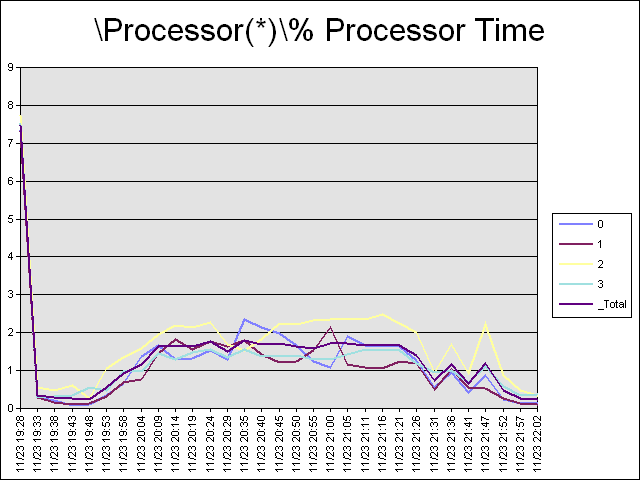LoadRunner stores date/time parameters locally on the LoadRunner PC. This means that opening a script on another users PC, where the date/time parameter is not stored, can cause corruption to the date/time parameters in a script. You know that this has happened when a date/time parameter in a format similar to this [%Y%m%d%H%M%S] is sent to the server rather than the format that you intended.
Due to this problem, we recommend that the lr_save_datetime function is used to save date or time values to a string. The string can then be used in the script and the script is portable between PCs because the script is no longer relying on the locally stored parameters.
This sample code shows different lr_save_datetime functions which can be incorporated into your scripts. As usual this sample code can be downloaded for further examination.
https://bish.co.uk/wp-content/uploads/2009/11/DateTime.zip
lr_save_datetime(“%d/%m/%y”, DATE_NOW, “DDMMYY”);
lr_output_message(“Today’s Date is %s”,lr_eval_string(“{DDMMYY}”));
lr_save_datetime(“%d/%m/%Y”, DATE_NOW, “DDMMYYYY”);
lr_output_message(“Today’s Date is %s”,lr_eval_string(“{DDMMYYYY}”));
lr_save_datetime(“%B %d %Y”, DATE_NOW, “Today”);
lr_output_message(“Today is %s”,lr_eval_string(“{Today}”));
lr_save_datetime(“%B %d %Y”, DATE_NOW + ONE_DAY, “Tomorrow”);
lr_output_message(“Tomorrow is %s”,lr_eval_string(“{Tomorrow}”));
lr_save_datetime(“%A”, DATE_NOW – ONE_DAY, “Yesterday”);
lr_output_message(“Yesterday was %s”,lr_eval_string(“{Yesterday}”));
lr_save_datetime(“%A”, DATE_NOW, “Today”);
lr_output_message(“Today is %s”,lr_eval_string(“{Today}”));
lr_save_datetime(“%A”, DATE_NOW + ONE_DAY, “Tomorrow”);
lr_output_message(“Tomorrow is %s”,lr_eval_string(“{Tomorrow}”));
lr_save_datetime(“%X”, TIME_NOW , “Time”);
lr_output_message(“The time is %s (in this locale’s date format)”,lr_eval_string(“{Time}”));
lr_save_datetime(“%X”, TIME_NOW + ONE_HOUR , “Time”);
lr_output_message(“In one hour it will be %s”,lr_eval_string(“{Time}”));
lr_save_datetime(“%A”, DATE_NOW + ONE_DAY, “Tomorrow”);
lr_output_message(“Tomorrow is %s”,lr_eval_string(“{Tomorrow}”));
lr_save_datetime(“%j”, DATE_NOW, “Today”);
lr_output_message(“Today is day %s in the year”,lr_eval_string(“{Today}”));
lr_save_datetime(“%Z”, DATE_NOW, “TimeZone”);
lr_output_message(“This machine is in the ‘%s’ time zone”,lr_eval_string(“{TimeZone}”));
lr_save_datetime(“%p”, DATE_NOW, “AMPM”);
if (strcmp (lr_eval_string(“{AMPM}”),”PM”)!=0)
{
lr_output_message(“Good Morning”);
}
else
lr_output_message(“Good Afternoon”);
